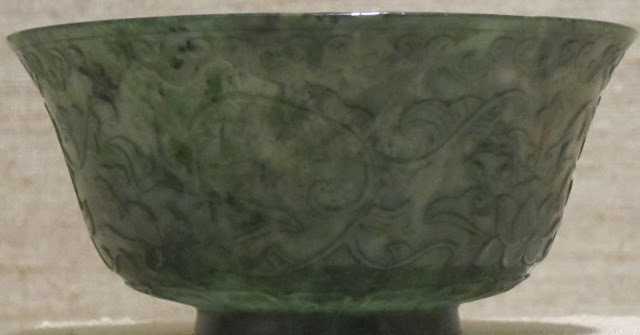Around 164 BCE, Emperor Wen of the Han Dynasty reached his seventeenth year of rule, according to the ancient Chinese calendar. That year, a man named Xinyuan Ping began to send reports to the emperor of great wondrous cloud formations and the appearance of mystical signs. He also recommended that searches should be mounted for the lost sacred cauldrons of the fallen Zhou Dynasty and he also suspected that a magnificent jade artifact would soon be discovered.
As Xinyuan Ping predicted, a beautiful jade cup was found with an inscription that read, “Long Life to the Lord of Men.” Emperor Wen was so excited about the jade object that he ordered feasts and parties to be held throughout his empire. The emperor believed the discovery was such a momentous event in his life that he decided to reset the years of his reign—it was no longer the seventeenth year of his rule; now it was the first year of the second part of his reign.
Emperor Wen’s exuberation, however, did not last for long. Before the end of 164 BCE, the jade cup and the other signs reported by Xinyuan Ping were all proven to be fraudulent. As a response to the embarrassment, Emperor Wen had Xinyuan Ping and three sets of his relatives executed, even though the emperor strongly wanted to outlaw multi-generational punishment. The reset in the numbering of Emperor Wen’s reign, however, interestingly remained intact.
Written by C. Keith Hansley.
Picture Attribution: (Chinese jade (nephrite) bowl, 19th century, Dayton Art Institute, [Public Domain] via Creative Commons).
Sources:
- The Records of the Grand Historian (Shi ji) by Sima Qian, translated by Burton Watson. New York: Columbia University Press, 1993.
- https://www.britannica.com/biography/Wendi-emperor-of-Han-dynasty
- http://www.chinaknowledge.de/History/Han/personshanwendi.html

No comments:
Post a Comment